A Horticultural Code of Practice has been developed by GB Administrations, Trade organisations, NDPBs and Environmental NGOs.
- View the Horticultural code for England and Wales (PDF)- latest (2011) version
- View the Horticultural code for Scotland (PDF)
Other resources that should be read in conjunction with this code include:
- Species currently listed on Schedule 9 of the Wildlife and Countryside Act (external link)
- Guidance on section 14 of the Wildlife and Countryside Act (PDF)
- Knotweed Code of Practice (PDF)
- Flatworm Code of Practice
Additional resources
Materials relating to the Horticultural Code of Practice
- Copies of Acts of Parliament and Statutory Instruments can be obtained from The Stationery Office (external link)
- Advice on topsoil (external link)
- Advice on undertaking a Control of Substances Hazardous to Health (COSHH)
- The Health and Safety Executive (HSE) provides general advice relating to Codes of Practice (external link), using Plant Protection Products in the Home (external link), and using Pesticides (external link).
- Guidance on how to stop invasive non-native plants from spreading (external link)
- Guidance on the use of herbicides to control non-native plants in or near water (external link) and general information on using herbicides (external link)
- Advice on dealing with Japanese knotweed and other invasive plants (external link) and general information and advice about Japanese knotweed (external link)
- Guidance on the plant pests and diseases that are of a significant risk to Scotland (external link)
- Be Plant Wise campaign
Advice about the importation of plants
- Scottish Government's Plant Health Guide for Importers (external link)
- Royal Horticultural Society (external link)
Advice on alternatives to invasive non-native species
Advice and regulations on waste disposal
- Environment Agency (external link)
- On-site management of Japanese knotweed and associated contaminated soils (SEPA Technical Guidance Note (external link)
